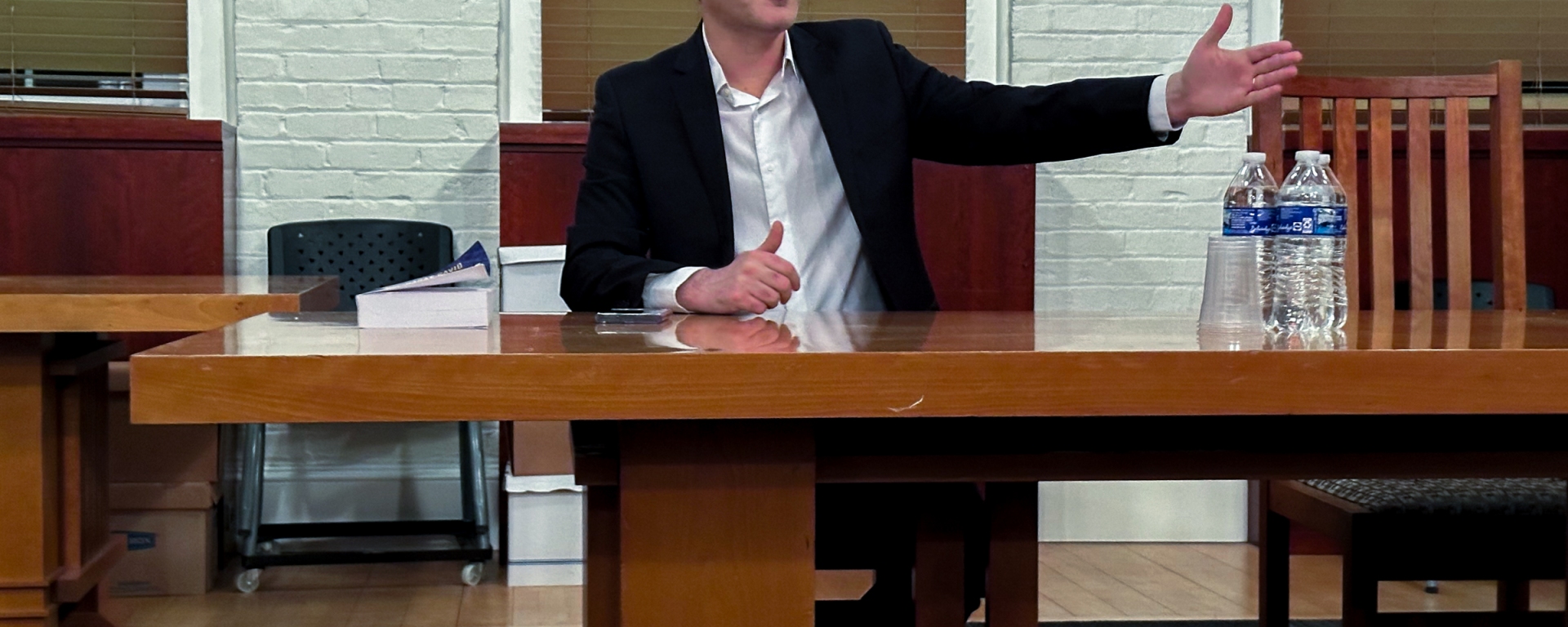by Franklin Zessis
“Things could’ve been much, much worse” without former President Donald Trump’s Abraham Accords, which several Arab countries normalize relations with Israel, Israeli journalist Barak Ravid said at a talk at the University of Maryland on Tuesday evening.
“Without the Abraham Accords, we wouldn’t be having this conversation,” he said.
Ravid — a CNN political and foreign policy analyst and Axios reporter — said the Abraham Accords would not have happened without Trump, pointing to three crucial reasons.
Before Trump, Middle Eastern countries did not trust the U.S., Ravid said. Previous policies, such as the Iran nuclear deal, didn’t help, Ravid said. Trump’s foreign policies helped regain that trust.
The second key decision was the people Trump appointed to deal with foreign policy. Trump appointed Jared Kushner, his son-in-law, to be his senior advisor. Where the American press saw nepotism — installing a family member to a key position of power — Ravid said Middle Eastern countries saw it as a sign of the president’s seriousness. Kushner, after all, has an immediate line to the president.
The third key was Trump’s willingness to hand out tangible deliveries to encourage Arab countries to reach an agreement, including recognizing Morocco’s claim to the Western Sahara in North Africa.
Ravid said that without the Abraham Accords, the Israel-Gaza conflict could have been even worse. No Arab countries cut diplomatic ties with Israel after its war in the Gaza Strip, which Ravid said was a success of the agreements.
Ilai Saltzman, the director of the Joseph and Alma Gildenhorn Institute for Israel Studies, agreed with Ravid’s assessment.
“It’s not a peace agreement per se because there was no state of war between the parties. But it does elevate the ability of Israel, the United States and other regional actors to move beyond conflict to beyond kind of a disconnect and establish something that is new,” Saltzman said.
Ravid said Arab countries, including the United Arab Emirates, have condemned Hamas, the Palestinian militant group that launched the Oct. 7 attack on Israel, and want Israel to destroy the group — even if they won’t say so publicly.
The Israel-Gaza war has spilled onto the university’s campus in the form of protests for and against Israel. The rhetoric has heated up in the months since, culminating in a chalked message at a Students for Justice in Palestine event on Nov. 9 reading “Holocaust 2.0.” A chapter spokesperson told Stories Beneath the Shell that the message intended to compare the bombing campaign in Gaza to the Holocaust — not call for a second Holocaust, as some claimed. At the same protest, students chanted, “There is only one solution: Intifada, revolution.”
Two weeks after the chalk went viral on social media, university President Darryll Pines announced in a campus-wide email that the university would restrict chalking to Hornbake Plaza and in front of the Adele H. Stamp Student Union.
Protests against Israel’s war have continued, the latest flanked by around a dozen police officers and several campus administrators on the margins observing the protest. The administration also held a town hall at the university’s Hillel chapter, where Jewish students expressed outrage at what they perceived to be the administration’s inaction in countering antisemitism.
Maxine Grossman, the director of the Joseph and Rebecca Meyerhoff Center for Jewish Studies, said there needs to be more conversations about the conflict to reduce the tension.
“People need to be taking classes in Israel studies in Jewish studies history,” she said. “We need to not get caught up in the viral reproduction of inaccurate things, and we need to give people the benefit of the doubt and try to understand what they’re saying. And then disagree with them if necessary, but not disagree first.”
Joel Lev-Tov and Sanya Wason contributed to this report.
Featured image: Barak Ravid gestures during his talk at the University of Maryland’s Taliaferro Hall promoting his new book, Tuesday, Dec. 5, 2023. He argued that former President Donald Trump’s new approach to foreign policy reshaped the Middle East. Photo by Joel Lev-Tov.

